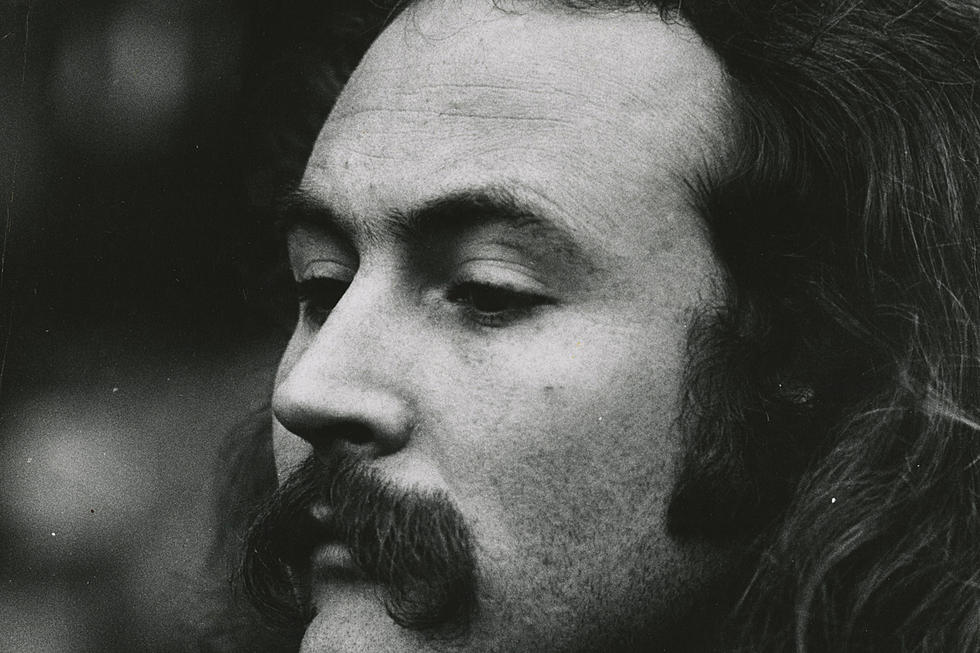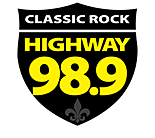
How David Crosby’s First Solo Album Saved His Life
David Crosby celebrated a milestone birthday in August, and he’s not pleased about it. “Eighty is not happy,” he says, while allowing that probably 50 of those years could be counted as a bonus round thanks to his past substance-abuse issues.
He’s made good use of the extra time, especially during the past decade. The two-time Rock & Roll Hall of Fame inductee has released five solo albums since 2014; the latest, For Free, arrived in July.
Crosby's first solo outing appeared 50 years ago, but it came out of sad circumstances. His girlfriend, Christine Hinton, had been killed in a traffic accident, and the singer-songwriter's friends rallied around him and grouped up in the same San Francisco studio owned by Wally Heider where Crosby, Stills, Nash & Young had just recorded Deja Vu.
Members of the Grateful Dead and Jefferson Airplane, along with CSNY bandmate Neil Young, were among the many artists who helped out on If I Could Only Remember My Name. An expanded new reissue of the album adds a disc of unheard highlights from the sessions, which ran from August 1970 through January 1971. It was a cathartic time for Crosby, who tells UCR that the experience saved his life as he tried to make sense of Hinton's death.
If I Could Only Remember My Name was the first album you made solo. That was 50 years ago.
It was a very tough thing. I had just finished Deja Vu. In the middle of [that album], my girlfriend [Christine Hinton] took off to take the cats to the vet and got killed. I didn’t have any way to deal with it. I didn’t know what to do. Nobody had died that I was in love with before, and it slaughtered me and just knocked me right off my pins completely. They say that they kept finding me just sitting on the floor crying. I believe ‘em. I kind of remember that happening. In the middle of that, I’m devastated, and I’m living on my boat in Sausalito and driving into Wally Heider’s at night. Wally’s [studio] was the only place I knew to be. It’s the only place I could do something that would make me not be so sad that I wanted to die. And I was that sad.
So I stayed in the studio and just started working on all of the songs that I had, because they’d only taken two of them for Deja Vu. A wonderful thing happened. My friends all came to the studio, particularly [Jerry] Garcia, almost every night. He never mentioned anything about Christine, but he knew. Obviously he knew. He knew what my mental state was, and he was a kind soul and a genius fuckin’ musician. Every time he and I would sit down with a couple of guitars, I would get elevated and feel totally fuckin’ wonderful and in heaven. Then the music would stop, and I’d remember that my girlfriend was dead. It was exquisite happiness in the middle of the music and really aching sadness would come washing back in.
It was a very, very strange and tough deal. But the result was the joy won. The only place you can feel how sad I was is the last thing: “I’d Swear There Was Somebody Here.”
Listen to David Crosby's 'I'd Swear There Was Somebody Here'
In a 1971 interview, you talked about how you had written a bunch of songs about Christine, but you hadn’t sung them to anybody and didn’t think that you would.
You go past it. When you’re confronted with it, it devastates you. And then you’re trying to survive, so you slowly try to reorganize yourself into being able to accept the reality and then find a way that you can work to go forward. That’s what I did. I grabbed the major magic in my life, the music, and I held onto it with a death grip, and that was absolutely the right thing to do.
There seemed to be a great connection with Jerry Garcia.
Very, very definitely. You ever listen to “Kids and Dogs”?
Oh, yeah.
Okay, at the beginning of “Kids and Dogs,” we’re playing a game. Pulse, pulse, hit a note. Pulse, pulse, hit a note. Neither of us knows what note the other one is going to hit. It’s a game. We’re fooling with each other. So we hit one that’s so good that Jerry starts laughing. You can hear him laughing if you listen to the tape. That happened all of the time. We would do stuff musically that would just bring utter fucking joy to both of us. For a person who was just dying from sadness, it was lifeblood.
“Laughing” is a song that you had around for a bit, so it had to feel pretty good to get songs like that on a record finally.
It’s amazing. That particular song I wrote for George [Harrison], and it had a lot of significance to me, because I just really liked the guy. It actually felt exactly the way I wanted it to feel. You don’t often get that to happen. “Laughing” just came out right. It came out really right.
Had you had a chance to present that song to George Harrison?
No. I don’t know if he ever heard it even. I think he did. Olivia [Harrison] told me that he told her the same thing that he told me: that I had turned him on to Indian music and that he was very grateful. I think that probably a number of people turned him on to Indian music. I think he was trying to be nice.
“Cowboy Movie” is a fan favorite and totally lives up to its title.
It’s a story song, and if you know who’s who, it’s about CSNY. But you’d have to know which bandit in the song is which guy in CSNY. But it turned out to be a strong piece. It’s a very simple song musically, so you can play really good rock 'n' roll with it. We had a blast with it, many a time, I can tell you.
There’s a second version on this new reissue with Neil Young taking the guitar solo instead of Jerry Garcia. Why didn't that version make the original record?
We thought that the one we put on the original record was better. We had the Neil take, and we knew that it was fiery and pretty exciting. He’s a little over the top in that take. He’s trying a little too hard. So it didn’t resonate with me as well as the take that had two Jerrys on it, which is the one that went on the record.
Listen to the Alternate Version of David Crosby's ‘Cowboy Movie’
The album benefits from all of the people who guest here. How much of an issue was it getting all the record companies to sign off on their artists?
Not much. Nobody thought it was an important record or that it would be anything. Nobody really gave a shit.
Were there any compromises that you had to make with the record label?
I don’t remember any. Everybody that came, they were very happy to have my ... you’ve got to remember, man, we’d just put out Deja Vu.
You’re in a good place.
Kinda! [Laughs]
What were some of the things that you found on the album tapes for this reissue that you were excited about?
I like [the version of] “Coast Road” that they put on there. I think it’s pretty. It’s like an unfinished song to me, but it’s interesting. I never finished the lyrics, so we never finished the song. It was just like a jam with some words included. It’s me and Laura Allen, mostly. We had a very good time doing that, I’ve got to admit.
“Dancer” is one of several songs on the album without lyrics. That one sounds like there could have been lyrics on it at some point.
You know, I fool around with music, and I fool around with words. When I fool around with the music, I don’t worry about whether I’ve got words or not. I just follow the genius of the moment. It takes me wherever it’s going to take me. I wound up with that “Dancer” set of changes, and I loved them, but I did not have a set of words. I don’t think you absolutely have to have a set of words to communicate. You can communicate something just by using your voice like a stack of horns, which is what I did. I really like “Dancer.” I think it’s a really good one. I took some liberties with the vocals there and they get pretty expressive. I like doing that. I’m going to continue to do it.
What are some of your favorite memories from the sessions?
All those cats, man. [Jack] Casady, [Paul] Kantner and [Jorma] Kaukonen. David Freiberg, Laura Allen. Grace [Slick]. Oh, fuckin’ Grace, man. She was so wonderful. Kantner and Grace were just like really good friends for me right then when I really fuckin’ needed it. It was a great time for them to be really good friends to me. I really needed it, and they really gave it.



